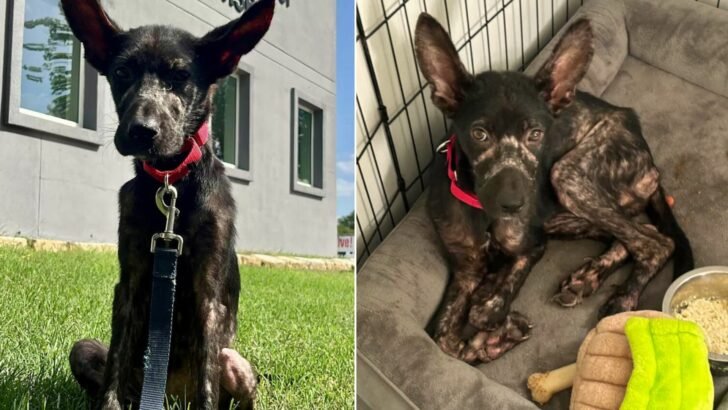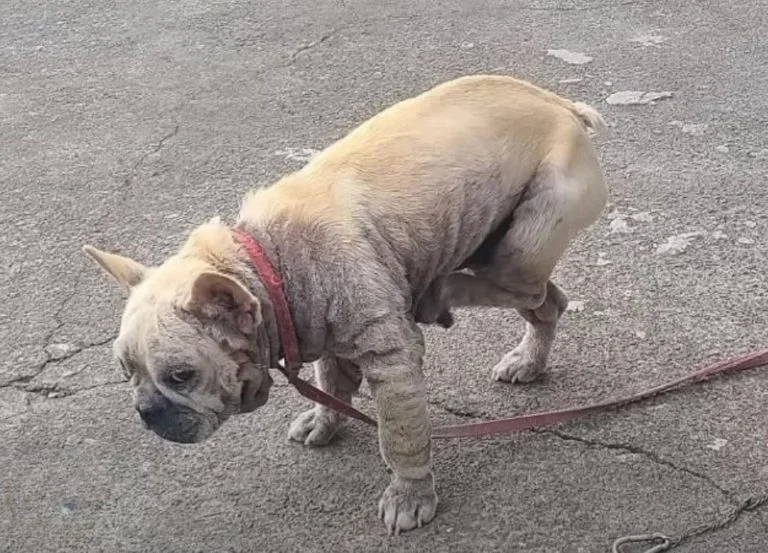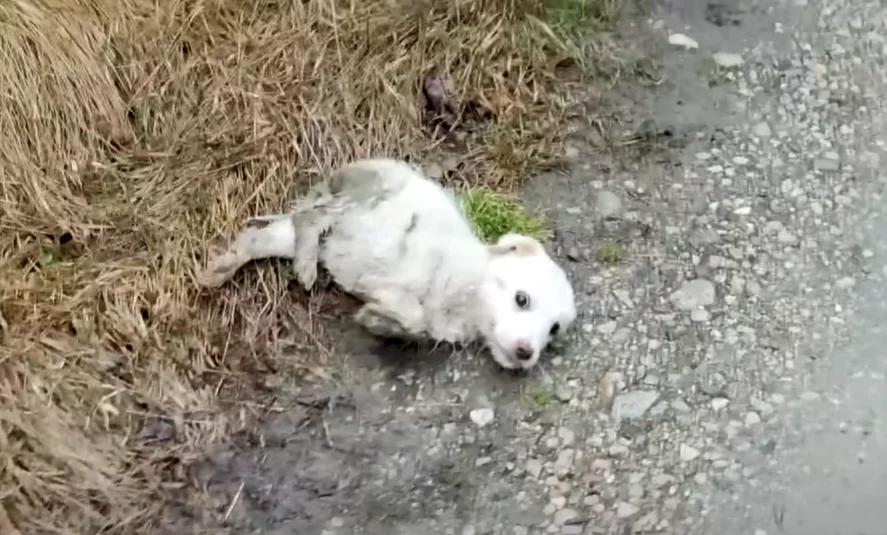Under the cover of night, a frail dog limped through the empty streets, his mangy coat patchy and inflamed. His ribs jutted out from beneath his scarred skin, and each step he took seemed to bring fresh agony. The dog paused beside a garbage bin, letting out a soft, pained whimper that echoed in the stillness. It was a sound of pure despair, as if the weight of his suffering had finally become unbearable.
Inside a modest home just down the street, Martin was preparing for bed when the sound reached his ears. At first, he thought it was the wind, but then it came again—a mournful cry that tugged at his heart. Unable to ignore it, Martin grabbed a flashlight and stepped outside, his breath forming clouds in the chilly air.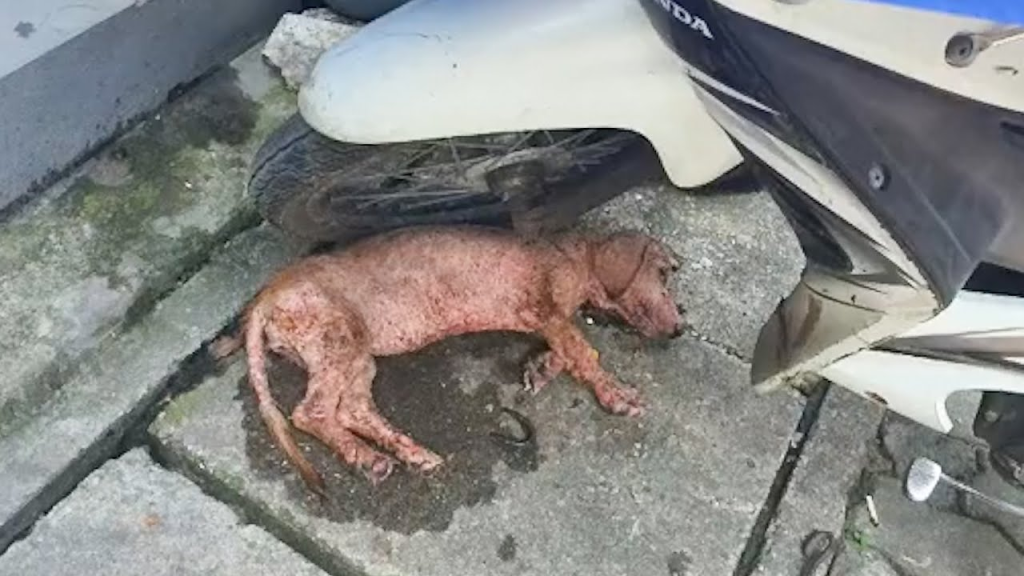
The beam of his flashlight swept across the street until it landed on the hunched figure by the trash. Martin’s heart sank. The dog barely moved, his head turning slightly to reveal dull, pleading eyes. Martin approached slowly, speaking softly.
“Hey there, buddy. It’s okay. I’m here to help.”
The dog flinched at first but lacked the strength to run. Up close, Martin could see the extent of the dog’s condition: open sores covered his body, his paws were raw and swollen, and his once-proud tail hung limp. Despite his fear, the dog let out another weak whimper, as if begging for relief.
Martin knew he couldn’t leave the animal to suffer. Carefully, he placed a thick towel over the dog’s fragile body and lifted him into his arms. The dog didn’t resist; he was too weak to fight back.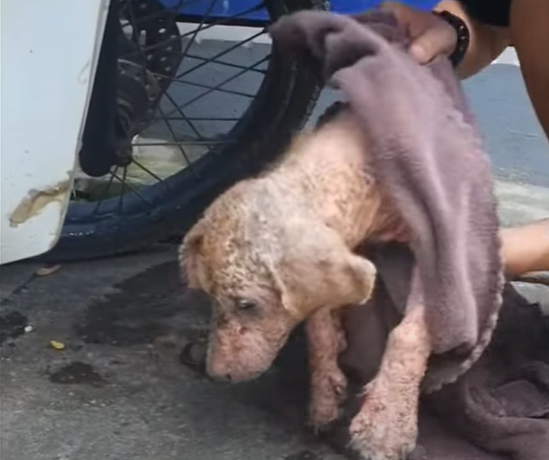
Back at home, Martin prepared a warm corner in his kitchen, lining it with soft blankets. He offered the dog fresh water and a small bowl of food. The dog hesitated but eventually took a few tentative bites. Martin sat nearby, watching over him, whispering words of reassurance.
The next morning, Martin brought the dog to a local veterinarian. The diagnosis was grim: advanced mange, severe malnutrition, and multiple untreated infections. The vet explained that the road to recovery would be long and difficult, but Martin didn’t waver.
Over the following weeks, Martin dedicated himself to the dog’s care. He named him Leo, after a constellation that symbolized bravery. Treating Leo’s mange required medicated baths, ointments, and oral medications, all of which Leo endured with remarkable patience. Though the process was painful at times, Martin’s gentle touch and soothing voice seemed to reassure Leo that he was safe.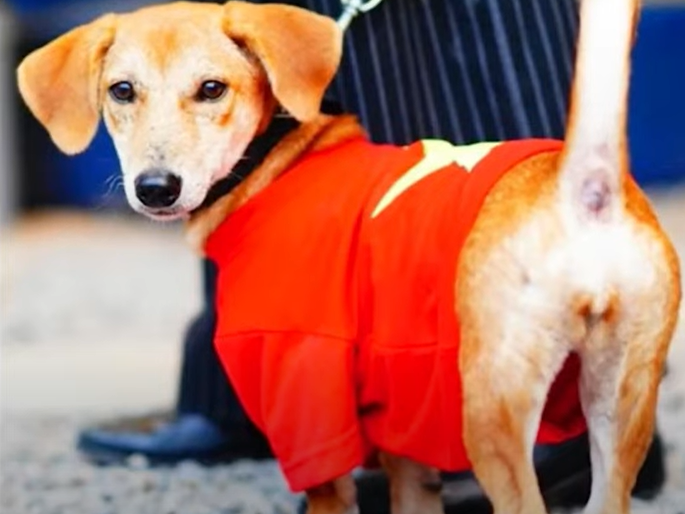
As the days turned into weeks, Leo began to change. His fur, once sparse and dull, started to grow back in soft patches. His eyes, initially clouded with fear, became brighter and more trusting. For the first time in what seemed like forever, Leo wagged his tail—a small but profound gesture that brought tears to Martin’s eyes.
One evening, as they sat together on the porch, Leo rested his head on Martin’s lap, a content sigh escaping his lips. The transformation was undeniable. The mangy, broken creature that had once cried out in pain was now a vibrant, loving companion.
Leo’s story didn’t just change his life; it changed Martin’s as well. The bond they formed reminded Martin of the power of compassion and the resilience of even the most fragile beings.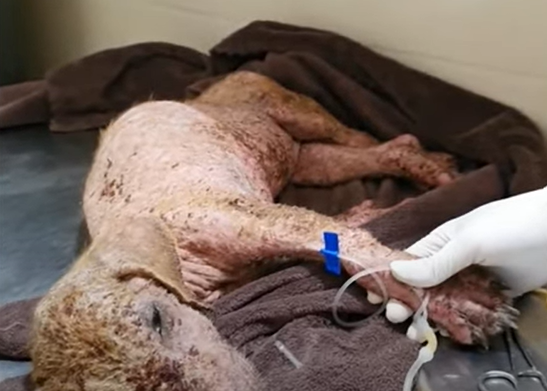
Today, Leo runs freely in the yard, his once-battered body now strong and healthy. His coat shines under the sun, and his tail wags constantly, a beacon of happiness. Martin often reflects on the night he heard Leo’s cries, grateful that he had listened.
Leo’s journey from despair to joy serves as a reminder that every life, no matter how broken, is worth saving. And in the warmth of Martin’s home, Leo finally found what he had always deserved—a second chance and a family that would never let him go.


